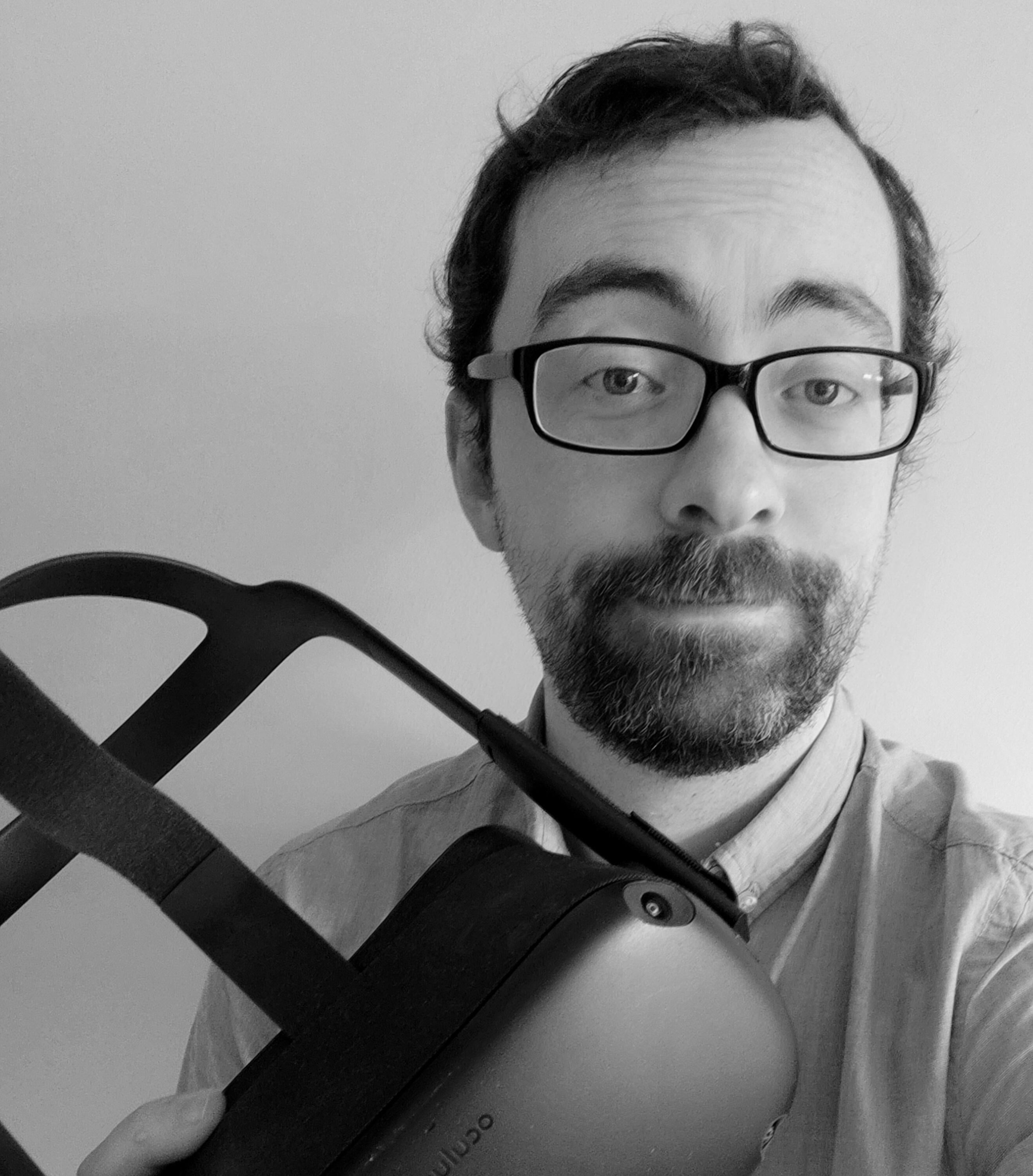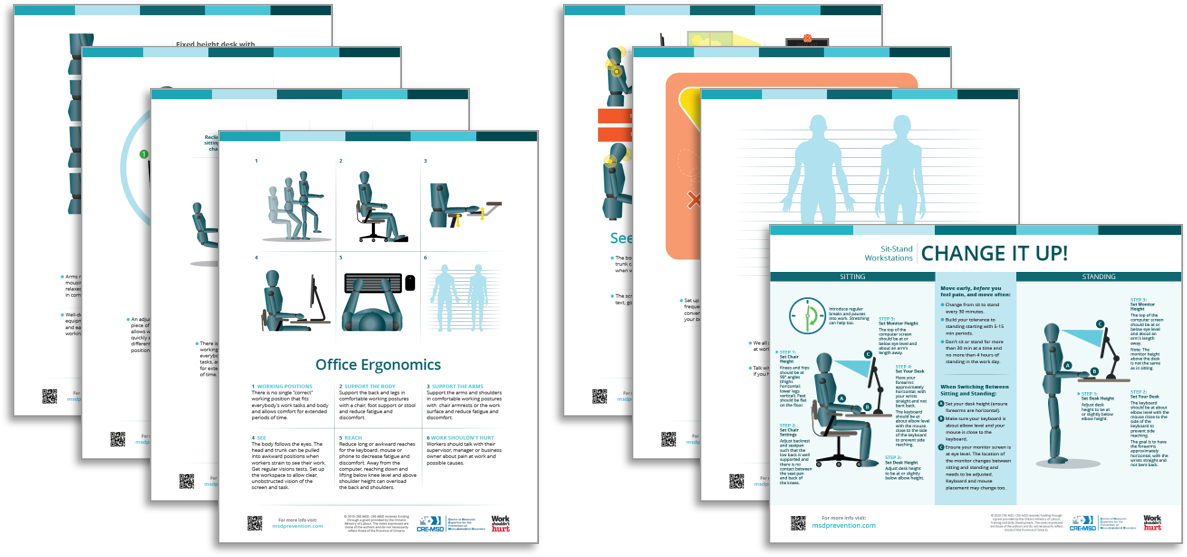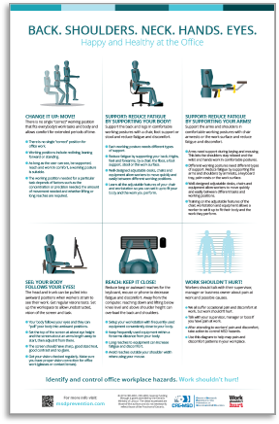Webinar series
The COVID-19 pandemic has forced a rapid change in the way we work and the need to support workers at the office and at home. Adjustments have been made including work hours, equipment, physical space layout and work format, be it virtual or masked in-person. The temporary remote work instituted in March of 2020 resulted in using makeshift workstations at kitchen counters, spare bedrooms, and living rooms, a situation that continues for many to persist over 1.5 years later.
Join CRE-MSD, IHSA, PSHSA, WSPS, and OHCOW during Global Ergonomics Month in October for this free webinar series featuring six international experts. The series will explore flexible/hybrid office environments and returning to on-site office workspaces, how these can be supported, the impact on health, moving beyond the constraints of individual productivity, and a look at what a true “virtual” workspace will look like in the future.
This five-part webinar series will examine research on how pivoting imposed by COVID-19 health hazards has impacted workers and challenged the health and safety support system’s ability to ensure ‘work shouldn’t hurt’. It will assist organizations to learn about and help prevent physical, cognitive and psychological challenges related to remote work practices implemented during COVID-19.
Other webinars in the series
In this webinar
For the past year and a half, working from home has become the norm for many. This shift has provided a stronger focus on virtual workspaces and equipment. Virtual and Augmented Reality (VR/AR) headsets are increasingly moving towards consumer-friendly, everyday wearable form factors. Their eventual adoption offers the possibility of transforming how we work – in the office, at home, and on-the-move - capable of both supplementing, and in-time entirely supplanting, physical displays in lieu of rendering virtual spatial interfaces.
This webinar will explore some of the key benefits that virtual workspaces offer, both for ergonomics and usability in seated productivity generally, and how we might move beyond the existing constraints of the individual experience of productivity.
For assistance, please contact Betina Butler at bbutler@uwaterloo.ca.
About the presenter

Dr. Mark McGill is an early career Lecturer in Human-Computer Interaction in the School of Computing Science at the University of Glasgow, Scotland, UK. His research interests revolve around the future impact of everyday augmented, virtual and mixed reality technology, focusing on their potential to transform passenger experiences (as part of a 5-year European Research Council project, ViAjeRo https://viajero-project.org/); their ability to augment and fundamentally alter our personal, private workspaces and peripherals; and the ethical and privacy challenges posed by the anticipated mass adoption of these technologies.
Other resources
We encourage you to take advantage of CRE-MSD resources such as the Office Quick Start Guideline, a collection of posters/infographics that provide basic information and quick workplace fixes for preventing MSD while performing office work. This free resource is part of the MSD Prevention Guideline for Ontario.



Disclaimer: CRE-MSD receives funding through a grant provided by the Ontario Ministry of Labour, Training and Skills Development (MLTSD). The views expressed are those of the presenters and do not necessarily reflect those of the Centre nor of the Province of Ontario.